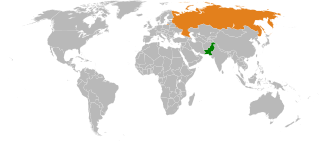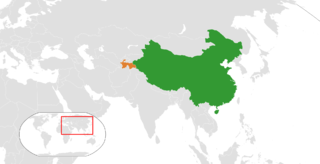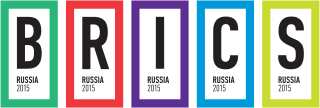| 2012 SCO summit | |
|---|---|
 | |
| Host country | |
| Date | 6–7 June 2012 |
| Cities | Beijing |
The 2012 SCO summit was the 12th annual summit of the Shanghai Cooperation Organisation.
| 2012 SCO summit | |
|---|---|
 | |
| Host country | |
| Date | 6–7 June 2012 |
| Cities | Beijing |
The 2012 SCO summit was the 12th annual summit of the Shanghai Cooperation Organisation.
At the previous summit in Kazakhstan, new rules in regards to the admission of more member states were discussed, with the details expected to be clarified at this summit. [1]
The heads of state of the six countries participated in the summit.
The other state delegations are led by:
The Putin-led Russian delegation included: Foreign Minister Sergey Lavrov [11] and five other cabinet ministers[ which? ] and the head of Gazprom, Viktor Zubkov, as well from other energy companies.[ which? ] [12] The delegation was welcomed by Vice Foreign Minister Zhang Zhijun. [13]
The agenda included discussions about the Syrian uprising and criticism by the Western world of Russia and China's approach towards sanctioning the government of Syria. [5] Host President Hu Jintao also said that the SCO would support a security paradigm that would give its member states sovereignty over what is deemed to be its own interests in accordance with individual state's conditions. It also sought to counter "interventionism." [14]
Rules for the admission of further member states were expected to be issued. Turkey was considered for admission as a "dialogue partner" and Afghanistan joined as an "observer." China did not object to either states citing their status as "NATO-friendly countries." Afghanistan is already currently involved as part of the SCO-Afghanistan Contact Group, which is working on reconstruction projects in the country. [1] However, Vice Foreign Minister Cheng Guoping said the observers were unlikely to become full members as yet due to expectations for more "preparatory work," though the current members would maintain an "open attitude" towards future relations: [8]
The relevant countries should work hard towards political, legal and technical preparations for [membership]. The relevant work is going on about expansion of membership. The decision should be made through consensus and consultation, and no timetable should be set. That is to say, when the conditions are ripe, the decision should be made through consensus.
The founding ethos for the SCO, counter-terrorism, was also expected to be high on the agenda. [8]
Other issues suggested for discussion were a bigger role for SCO after NATO withdraws its forces following the War in Afghanistan [8] (which could be enhanced by Afghanistan's acceptance as an observer [15] ) and in working towards a solution to Iran's nuclear programme, for which a statement criticising further international sanctions would be issued. Cheng also said that a road transport agreement would be signed, while discussions would continue in order to develop a financing safeguard mechanism and an SCO development bank. [8]
India sought to work with the Uzbekistan-based Regional Counter-Terrorism Structure, participate in discussions with the other trade ministers and coordinate its own work with the SCO over reconstruction efforts in Afghanistan, more so after the announced phased withdrawal of ISAF troops from that country, in what Russian Foreign Minister Sergei Lavrov called the "economic and political revival of Afghanistan." [15]
On 6 June, a group meeting between the six member states was scheduled in Beijing. The next day a larger meeting, business summit and a signing ceremony to conclude the summit was scheduled. [8]
At the start of the summit, Hu said: "We will continue to manage regional affairs by ourselves, guarding against shocks from turbulence outside the region. We will play a bigger role in Afghanistan's peaceful reconstruction. We'll strengthen communication, co-ordination and co-operation in dealing with major international and regional issues." [16]
Host leader Hu Jintao announced the conclusions to the summit as including: [17]
There were also ten agreements that were signed, including the Declaration on Building a Region with Lasting Peace and Common Prosperity, the Strategic Plan for the Medium-Term Development of the Shanghai Cooperation Organisation, as well as agreeing to unify the SCO's response to regional security threats. Hu then further told the summit delegations that "we should enhance consultations with international and regional organizations through the platform to safeguard peace, promote development and boost world multipolarization and democratization of international relations." Kyrgyzstan then took over the rotating presidency of the organisation the next day. [17]
The day prior to the commencement of the summit featured Russian President Vladimir Putin and host President Hu Jintao present for the signing of bilateral cooperation agreements in the fields of energy, industry, innovation technologies and tourism, as well an agreement to deepen China-Russia relations and strategic cooperation. [18] Putin was scheduled to meet China's chairman of the Committee of the National People's Congress Wu Bangguo, Premier Wen Jiabao, Vice President Xi Jinping and Vice Premier Li Keqiang. Russian Foreign Minister Sergei Lavrov said that Putin decision to come to China as part of one of his foreign visits as president was indicative of burgeoning relations between the two countries.[ citation needed ] China's Wen Jiabao met Kyrgyz President Almazbek Atambayev and discussed Kyrgyzstani stability and development. Wen said that the two states would work towards developing infrastructure in railways, energy and trade relations with an increase in the exchange of persons between the two countries. Atambayev added that he appreciated China's support and that Kyrgyzstan was working to enhance cooperation with China in the spheres trade, transportation, energy, agriculture and security. [4] Hu also met Kazakhstan's Nursultan Nazarbayev with him whom he pledged to enhance their "strategic partnership." [19] Nazarbayev also met Jinping. [20] The same pledges were made by Hu with Tajikistan's Emomali Rahmon, specifically in the sectors of energy, resources, infrastructure, agriculture and security. [21] Rahmon also said that China National Petroleum Corporation was invited to explore for both crude oil and natural gas in Tajikistan following the signing of an agreement on 5 June. He also signed an agreement with China for a US#50 million loan for a road construction project, as well as inviting Zijin Mining Group Company Limited to explore for copper. [22]
Afghan President Hamid Karzai said that Afghanistan and China would sign a preliminary agreement for the "creation of a strategic partnership" and work towards deepening relations. [16] Putin was also scheduled to meet with his Iranian [23] and Afghani counterparts. [5] The latter two would also hold talks with their Chinese counterpart. [8] Indian Foreign Minister S. M. Krishna is scheduled to meet Chinese Vice-Premier Li Keqiang [1] to discuss border issues and the incarceration of Indian nationals in China. [24]
Al Jazeera asked if the budding relationship between China and Russia would be akin to a "NATO of the east." [25]

Kazakhstan's approach to foreign relations is multifaceted and strategic, reflecting the country's unique geopolitical position, historical context, and economic ambitions. At the heart of its international diplomacy is a multivector foreign policy, which aims to maintain balanced and diverse relations with all major global powers and regional neighbours. Kazakhstan is a member of the United Nations, Collective Security Treaty Organization, Organization for Security and Co-operation in Europe, North Atlantic Cooperation Council, Commonwealth of Independent States, the Shanghai Cooperation Organisation, and NATO's Partnership for Peace program. Kazakhstan established a customs union with Russia and Belarus which eventually became the Eurasian Economic Union. President Nazarbayev has prioritized economic diplomacy into Kazakhstan's foreign policy.

The foreign relations of the Russian Federation is the policy arm of the government of Russia which guides its interactions with other nations, their citizens, and foreign organizations. This article covers the foreign policy of the Russian Federation since the dissolution of the Soviet Union in late 1991. At present, Russia has no diplomatic relations with Ukraine due to its ongoing invasion of Ukraine. Other than Ukraine, Russia also has no diplomatic relations with Georgia, Bhutan, Federated States of Micronesia or Solomon Islands.

The Shanghai Cooperation Organisation (SCO) is a Eurasian political, economic, international security and defence organization established by China and Russia in 2001. It is the world's largest regional organization in terms of geographic scope and population, covering approximately 24% of the area of world and 42% of the world population. As of 2024, its combined nominal GDP accounts for around 23%, while its GDP based on PPP comprises approximately 36% of the world's total.

The South Asian Association for Regional Cooperation (SAARC) is the regional intergovernmental organization and geopolitical union of states in South Asia. Its member states are Afghanistan, Bangladesh, Bhutan, India, Maldives, Nepal, Pakistan, and Sri Lanka. SAARC comprises 3% of the world's land area, 21% of the world's population and 5.21% of the global economy, as of 2021.

The Economic Cooperation Organization or ECO is a Eurasian political and economic intergovernmental organization that was founded in 1985 in Tehran by the leaders of Iran, Pakistan, and Turkey. It provides a platform to discuss ways to improve development and promote trade and investment opportunities. The ECO is an ad hoc organisation under the United Nations Charter. The objective is to establish a single market for goods and services, much like the European Union. After the dissolution of the Soviet Union, the ECO expanded to include Afghanistan, Azerbaijan, Kazakhstan, Kyrgyzstan, Tajikistan, Turkmenistan, and Uzbekistan in 1992.

The Central Asia plus Japan dialogue is a political initiative between Japan and the Central Asian nations of Kazakhstan, Kyrgyzstan, Tajikistan, Turkmenistan and Uzbekistan, with the goal to create “a new framework for cooperation, thereby elevating relations between Japan and Central Asia to a new level”. The dialogue, according to the Japanese Foreign Ministry, is also meant to serve as a forum to promote inter-regional cooperation. Turkmenistan, maintaining its policy of neutrality, participates only as an observer.

The Conference on Interaction and Confidence-Building Measures in Asia (CICA) is an inter-governmental forum for enhancing cooperation towards promoting peace, security and stability in Asia. It is a forum based on the recognition that there is a close link between peace, security and stability in Asia and in the rest of the world. The key idea of the Conference is based on the priority of the indivisibility of security, joint initiative and mutually beneficial interaction of small and large states.

The Soviet Union and Pakistan first established the diplomatic and bilateral relations on 1 May 1948.

China and Russia established diplomatic relations after the dissolution of the Soviet Union in 1991.

The 2012 BRICS summit was the fourth annual BRICS summit, an international relations conference attended by the heads of state or heads of government of the five member states Brazil, Russia, India, China and South Africa. The summit was held at Taj Hotel in New Delhi, India on 29 March 2012 and began at 10:00 Indian Standard Time. This is the first time that India has hosted a BRICS summit. The theme of the summit was "BRICS Partnership for Global Stability, Security and Prosperity".

The People's Republic of China and the Republic of Tajikistan have friendly relations characterized by bilateral and multilateral collaboration.

The Shanghai Cooperation Organisation (SCO) is an international alliance that consists of 10 member states and 2 observers from Eurasia. It was established on 26 April 1996 as the Shanghai Five. In addition to the 10 member states and 2 observer, the SCO currently has 14 dialogue partners and 4 guest attendance entries.

The 7th BRICS summit was the seventh annual diplomatic summit of the head of states or government of the BRICS member states. It was held in the Russian city of Ufa in Bashkortostan on 8–9 July 2015.
The 2014 SCO summit was the 13th annual summit of heads of state of the Shanghai Cooperation Organisation held between 11 and 12 September in Dushanbe, Tajikistan. Security was among the top issues for 13th annual summit and all members during the last meeting reached a consensus on fighting against separatism, extremism and terrorism, as well as on safeguarding regional peace and security therefore Afghanistan will be focal point during talks in Dushanbe, claim some diplomats of member countries.

The 2017 SCO summit was the 17th annual summit of heads of state of the Shanghai Cooperation Organisation held between 7 - 10 June in Astana, Kazakhstan. The upgrading of the membership of India and Pakistan to full members was one of the major topics, beside from security related topics, the Belt and Road Initiative and economic cooperation.
The Shanghai Cooperation Organisation Interbank Consortium is a platform for joint financing of development projects by members and other participants of the Shanghai Cooperation Organisation.

The 2022 SCO summit was the 22nd annual summit of heads of state of the Shanghai Cooperation Organisation held between 15 and 16 September 2022 in Samarkand, Uzbekistan.
From July 2 to 6, 2024, Chinese President and General Secretary of the Chinese Communist Party Xi Jinping will attend the 2024 SCO summit in Astana and pay state visits to the Republic of Kazakhstan and the Republic of Tajikistan.

The SCO Islamabad Summit 2024 was the 23rd annual Council of Heads of Government (CHG) of the Shanghai Cooperation Organisation held between 15 and 16 October 2024 in Islamabad, Pakistan.